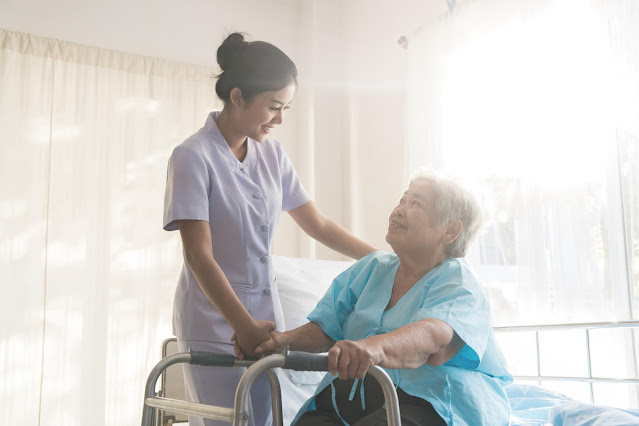Female migrant workers play a critical role in many industries and economies around the world—not just with the remittances they send home, but also with the special kind of care and compassion only they can offer.
Migrant women are powerful agents of change who positively contribute to both the Philippine economy and their destination countries. They bring diverse talent and expertise in the diaspora and send remittances to their families and communities back home.
According to the United Nations, 100 million migrant women send remittances annually—half of all senders globally. In the Philippines as well, a majority of overseas Filipino workers (OFWs) are women.
This year’s International Women’s Day theme “‘Innovation for a Gender-Equal Future'' highlights the need for innovative thinking and technology to address the longstanding gender inequalities that still exist today. Accessible, reliable, and low-cost digital services like WorldRemit can thus help break down the barriers that prevent women from fully participating in all aspects of life, including the workplace, education, and community.
In a recent interview with Katrina, one the first Filipina nurses in New Zealand, she shared how she helped other OFWs settle down after her.
“In 2011, more Filipinos immigrated to New Zealand. During the seven and a half years I lived there, I probably hosted more than 30 new Filipina nurses,” she said. It was during this time that she acted as an “adoptive mother” to the new talents.
Katrina, now working in Australia, has helped send her cousins through college over the past decade. “I am the eldest of the 13 grandchildren. I feel that providing for them is a way to repay my uncle, who also sent me through school, ” she said. On special occasions like birthdays and graduations, she sends money to other relatives.
“More mothers, daughters, and sisters are now leaving home to seek opportunities in other countries. They are mostly motivated by their desire to provide better lives for their families,” said Earl Melivo, Interim APAC Managing Director of WorldRemit.
A 2017 UN Women policy brief showed that women were more likely to spend on health, education, and development when they manage the household income, which may include remittances.
An example of this is Karen, a nurse based in the United States with her husband and children. However, she still makes an effort to send money back home to support her parents. “I send them money every three months which they can save, use, or set aside for emergencies. I also pay for my mom’s health insurance,” she said.
UN Women also reported that women’s remittances are becoming central in global migration policies. With women making up about half of migrant workers around the world, they play a big part in “decision-making processes on remittance-oriented initiatives.'' This doesn’t just make them senders and investors, but also “beneficiaries and protagonists of development,” according to an earlier study.
However, it is less known that female OFWs face more challenges than their male counterparts, which makes them some of the most vulnerable women in our society today. This could hinder their potential contributions to local and global development.
One of these challenges is the persistent gender wage gap. Despite having lower salaries, women still often send home more of their earnings to family. Women were found to pay up to 20 percent more in remittance fees than men as a result.
Women make up 51 percent, or 1 billion, of the world’s unbanked population, too. As they take on more informal jobs like domestic or care work, this could lead to limited access to formal remittance services and lower levels of financial literacy.
“Even though they are ‘protagonists of development,’ women bore the brunt of the COVID-19 pandemic's social and economic fallout. That’s why now more than ever, WorldRemit upholds its role of bringing opportunities closer to everyone, regardless of gender,” said Melivo. “In this regard, we help more women overcome hurdles after the pandemic, starting with financial inclusion.”
To read more stories about groundbreaking women workers around the world, visit https://www.worldremit.com/en/blog/community/.

